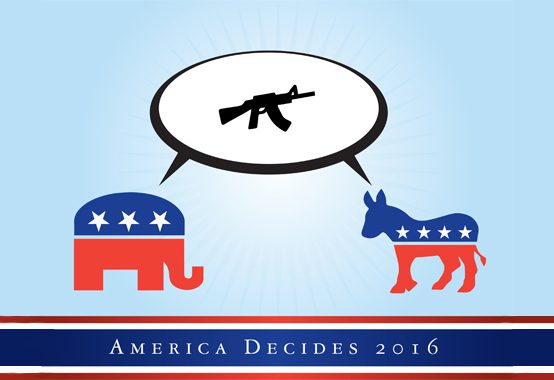The Revenge of the ‘Blob’

Uri Friedman reports on the backlash from the foreign policy establishment. This quote summed up a lot of what was and is wrong with that establishment:
“We have large problems of perception,” Kagan continued, in reference to the establishment. “Trump says this, but he’s not the only one: ‘The last 30 years have been a disaster in American foreign policy.’ And my answer to that is: Really? Compared to which 30 years? … Would you like the 30 years prior to World War I? Would you like the 30 years from World War I through World War II? Would you even like the 30 years following World War II, with the Cold War and [the wars in] Vietnam and Korea? Actually, the last 30 years have been pretty good in historical terms. And I think that what has been the American foreign-policy establishment’s bipartisan foreign policy since World War II has actually been one of the most successful foreign policies in history.”
The quote is interesting in a few ways. First, it confirms the willful blindness of many foreign policy professionals to U.S. foreign policy failures over at least the last fifteen years. I defy anyone to make the case that the U.S. is better off or more secure than it was when it embarked on the last fifteen-plus years of constant warfare. Lumping that period in with the relatively more peaceful decade before it helps Kagan to muddy the waters, but that doesn’t fool anyone. At best, the U.S. has been able to absorb the costs of huge strategic blunders because it enjoyed such a privileged position at the start of the century, and at worst it has frittered away both resources and missed opportunities while it has waged pointless wars that it didn’t have to fight. If that’s not disastrous, what is? It has been enormously costly, it has consumed a disproportionate share of the resources and attention of our government, and many of the policies in question have clearly failed on their own terms.
If the U.S. hasn’t suffered a debacle on the same scale as Vietnam in the last generation, it isn’t for lack of trying. Surely Iraq was horrible and costly enough. Even if the foreign policy record of the last twenty or thirty years isn’t as disastrous as it has been at other times, that doesn’t mean it hasn’t been a disaster on its own terms. Kagan says that the foreign policy establishment has “large problems of perception,” which would be true if he is referring to their perceptions of their own record, but that isn’t what he means. Naturally, no one wants to admit failure if it can be avoided, but when grand designs blow up in our faces as spectacularly as those favored by Kagan et al. it is hard to take their supporters seriously when they pretend that things haven’t been that bad. The trouble is that the public correctly perceives that the foreign policy establishment has repeatedly endorsed ill-advised policies that failed at substantial cost, and that establishment doesn’t want to be held accountable for those failures. Hence the misdirection and hand-waving about other eras that we see in that quote.
Kagan also wants to have things both ways. He wants credit for everything that went right over the last seventy years, and he wants to avoid blame for errors that he and his fellow ideologues made over the last decade and a half. Whatever successes the “bipartisan foreign policy since World War II” had, 21st century interventionists don’t get to hide their failures behind them. Remember that Kagan’s favored policies of preventive war and reckless intervention were based on a rejection of the ideas of containment and deterrence that prevailed during the Cold War. The world changed with the fall of the USSR, but U.S. foreign policy became more meddlesome rather than less. A more aggressive foreign policy may have made some sense when the Soviet Union still existed, but ceased to do so when it vanished.
Of course, Kagan and his allies weren’t actually the ones that “won” the Cold War, nor did they preside over detente, and by and large they opposed arms control agreements that helped to reduce tensions in the closing decades of the rivalry with the Soviets. Almost everything that Cold War-era leaders got right, they usually opposed, and they and people like them supported the disastrous blunders. They and their forerunners were among the alarmists that were decrying engagement with the Soviets as appeasement and weakness until the last minute, and if they had their way the U.S. would have remained far more intransigent and confrontational all along. The same people that viscerally loathe realists and all their works want to take credit for successes achieved by the same people they despise, and then when they have the chance to influence or make policy they reject all of the lessons that realists have to offer.
In any case, the horrible blunders of previous generations don’t absolve Kagan’s of the destructive and irresponsible policies that they supported (and still support). Kagan’s argument amounts to dismissing the costs of their incompetence, hubris, and ideological fantasies because other generations made similar or worse mistakes. He can’t really defend the record of the last fifteen or even thirty years on the merits, and so he deflects attention from it. If this is the best that the foreign policy establishment can offer, they are in bigger trouble than I thought.
Comments